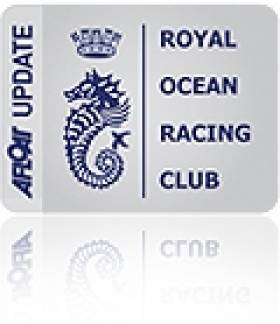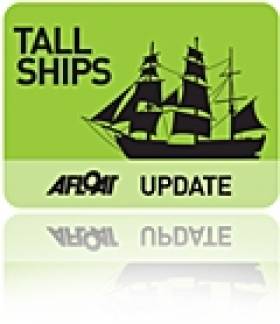Displaying items by tag: Niall
Royal Irish Yacht Arabella Takes Three RORC Awards
The Royal Ocean Racing Club in London has awarded Niall Dowling's Royal Irish yacht Arabella (a J111) the Alan Paul Trophy for consistent high performance in IRC, the Serendip Trophy for best series-produced Yacht in IRC, and the second place medallion in IRC overall for the 2011 RORC season.
West Cork School Offers Temporary Tall Ship Sloop Solution
"There was fantastic energy at the Tall Ships workshop and while it was agreed that Ireland would benefit tremendously from an iconic square rigger tall sihip, this will take some to bring to fruition.
In the meantime, we are can look to existing Tall Ships operating with Irish Flag to offer the great experience that Sail Training can offer. Rohan MacAllister, previously captain of Asgard II for 10 years attended the meeting with Gail & Niall MacAllister of West Cork Sailing Centre to present Cypraea as a marvelous tall ship sailing sloop that is equipped to provide sail training on our Irish waters this summer.
The attendees of the meeting congratulated the MacAllisters on their tenacity and determination in bringing their sail training vessel to our waters and making the "Sail Training Experience" accessable for teenagers and adults this summer by dedicating July to Teenage Sail Training 5 day adventure sails for 350 euro and August to Adults at 450 euro.
Cypraea is a 23.5m steel sloop with berths for 10 at present and plans to increase to 16. She has three sails and is an extremely hands on team work sailing experience.
West Cork Sailing have been providing ISA and RYA sailing for many years and are excited to be providing Sail Training and the amazing life changing opportunity that it can bring".
Looking for further reading on Tall Ships in Ireland? Click the links below:
Click this link to read all our Tall Ships Stories on one handy page
Previewing Ireland's Tall Ships 2011 Season
Can Ireland Get a New Tall Ship?

























































